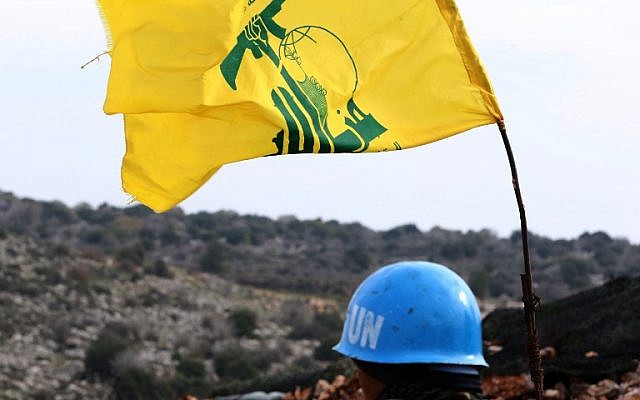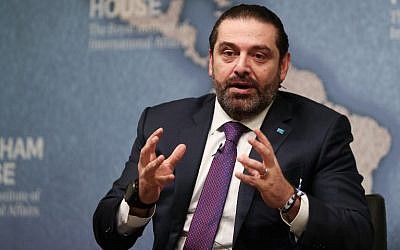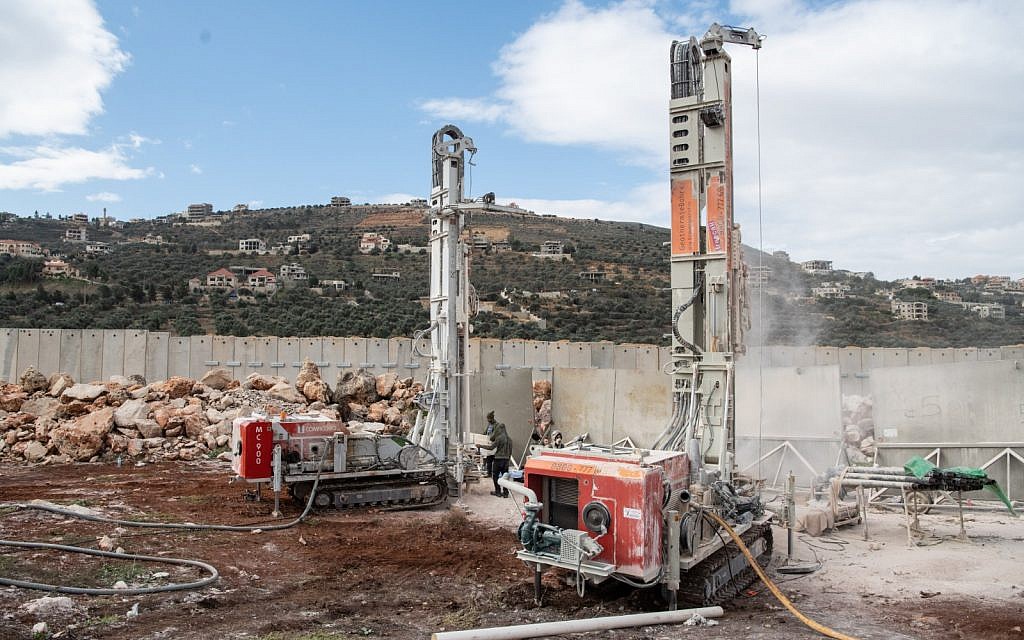As Lebanese politicians near completion of new government, State Department official says terror group’s political allies giving it a ‘veneer of legitimacy’

The United States is worried about the growing influence of the Hezbollah terror group in Lebanon, a State Department official said Tuesday, as Lebanese politicians signaled they were nearing completion of forming a new government.
“We continue to have deep concerns regarding Hezbollah’s growing political power inside Lebanon,” the unnamed official told Reuters.
“We are concerned about the efforts of Hezbollah’s political allies that provide it with top cover and a veneer of legitimacy,” the official added.
In parliamentary elections in May, the first in Lebanon in nine years, Shiite Hezbollah and its allies won more than 70 of 128 seats in parliament, dealing a blow to the Western-backed Sunni Prime Minister Saad Hariri.
The sides have since been at odds over the makeup of a new government, with Hezbollah pushing for a cabinet post for one of its Sunni partners, in a demand rejected by Hariri.
As part of a compromise deal, the cabinet position will not go to the Hezbollah-aligned Sunnis themselves but rather a representative for them, according to Reuters. In exchange, Hariri will recognize their status as an independent Sunni political grouping.
In a first, the Iran-backed Hezbollah is likely to get three ministries in the next government, up from two.

A number of Lebanese politicians said Tuesday that the new government could be finalized in the coming days.
The unnamed US official told Reuters that the US also hopes for cooperative relations with the next government on issues of mutual concern.
“We hope Lebanon’s next government will build a stable and secure Lebanon that is committed to peace, responsive to the needs of the Lebanese people, and working with the United States on areas of mutual interest,” the official said.
The push to finalize Lebanon’s next government comes amid an operation by the Israeli military to locate cross-border attack tunnels Israel says were dug by Hezbollah.
The United Nations Security Council will convene Wednesday to discuss the discovery of the tunnels, Israel’s UN mission said Tuesday.
The discussion, requested by Israel and the United States, will begin at 10 a.m. local time (5 p.m. Israel time) on Wednesday.

Israel has so far uncovered four passages crossing into Israel from Lebanon, and the UNIFIL peacekeeping force has confirmed their existence and acknowledged that the tunnels violate UN resolution 1701, adopted at the end of the 2006 Second Lebanon War. UNIFIL said Tuesday at least two of the tunnels crossed into Israeli territory.
Israel launched Operation Northern Shield, its effort to find and destroy the tunnels it attributes to the Iran-backed terrorist group, earlier this month.
The operation has raised prospects of a possible fresh conflict on the volatile border, though Lebanon has downplayed chances of war, so long as Israeli troops do not cross its territory. UN peacekeepers, meanwhile, have stepped up their patrols to ensure that the frontier remains calm.
The military said it believes the tunnels were meant to be used by Hezbollah as a surprise component of an opening salvo in a future war, to allow dozens or hundreds of terrorists into Israel, alongside a mass infiltration of operatives above-ground and the launching of rockets, missiles, and mortar shells at northern Israel.
As reported by The Times of Israel
